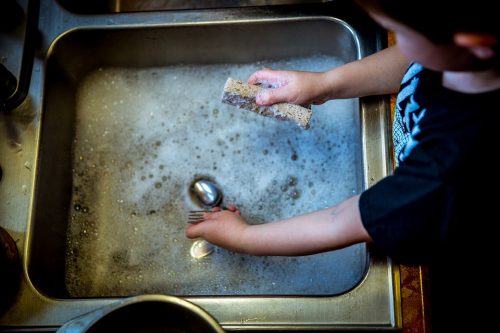Parenting differs in approach and consistency. That is because it considers the experience, gender, traits, culture, and beliefs of both children and parents. However, regardless of the difference in those certain aspects, all parents dream of wanting their child to become self-aware, obedient, intelligent, and ethical values. That explains why there are tons of tips and tricks on kids’ upbringing in different parts of the world. Psychologists and other experts agree that there is no particular rule book when raising kids. “A parent’s style is important. But it’s just one influence of many,” Gwen Dewar, Ph.D. points out. However, one that gets into their attention is Jewish parenting traits.
Most Jewish parents do not resort to any parental forums or internet blogs when it comes to raising their kids. Usually, they apply the traditional behavioral-focused methods that they believe somehow do the trick. Let’s take a look at those parental principles that Jewish parents incorporate in kids’ upbringing.

Reward Independence
In an ordinary family, there is this mentality that children only succeed in life when they believe they can do anything. Parents support their children’s decisions and actions, especially if those things show results valuable for future use. However, the whole idea of support does not limit to taking care of some of the things the children can’t handle. Therefore, parents are sometimes on-hand in that. But in Jewish parenting, there is a focus on independence where children must do things on their own. That is, regardless of age and social status. As long the kids are physically capable, their parents allow them to do anything. There is a limit of convenience as per se.
Mark Steinberg, Ph.D. reminds that, “Your role as a parent of an adult child changes dramatically as he or she emerges into young adulthood and what should be independence. ”
Trust Is A Reward
In Jewish parenting style, trust is the best reward children can have from their parents. The kids’ endeavors do not get rewarded by candies, objects, or any other things that fulfill their desire. But instead, they get to achieve trust, which allows them to do tasks and make decisions on their own. It is a type of reward that brings forward self-awareness and self-worth to the kids. Jewish parents believe that by making kids value trust; they will become more likely capable of handling even the most challenging environmental, psychological, emotional, and social issues they may encounter.

Getting Dirty Is Fine
If in case you didn’t notice, a lot of parents don’t want their kids to look awful and dirty. Most of them immediately clean and wash the kids’ dirt off. Perhaps that is a common parenting practice because nobody wants their kids to have any kinds of diseases and viruses from filth. However, in Jewish parenting, kids are allowed to get dirty. Children often appear to be covered with dirt, knees are dusty, and their hands are sticky, and so on. That is because Jewish parents find the outer cleanliness useless to a child’s development, growth, and wisdom.
Acceptance Of Untidiness
When talking about how kids’ can become tidy at all times, parents take the credit. It means that children are well-taught about the importance of keeping everything clean and organized. However, in a Jewish parenting style, it is different. Jewish parents don’t care if the kids are messy and untidy. They don’t bother whether their whole surrounding is chaos. They believe that kids should be allowed to spill everything and knock things over. These Jewish parents allow their kids to live in a surrounding they feel comfortable with even if it is not something that society would agree. But take note, they will still explain why tidiness is essential for them in future use.

Wise Freedom
Indeed Jewish kids are allowed to do many things on their own. However, the one thing they are not permitted to do is disrespecting the family. No matter what the situation is, the children must never do things that will make their parents upset. Aside from getting a much harsher punishment, the kids’ may also get validated disapprovals. Unlike in a typical family situation where kids get exempted from doing unintentional harm, Jewish parents take action precariously. That is the reason they always make sure that once children can understand rules, they are asked to follow them.
“When you give children the tools they need to figure things out on their own, they will behave better because they’ll be better equipped to take care of themselves and won’t come screaming to you or act out every time they encounter a challenge,” says Robert Brooks, Ph.D.
Some parents may or may not agree with the Jewish parenting style. But for those people who understand, they will notice a positive side of all the traits.